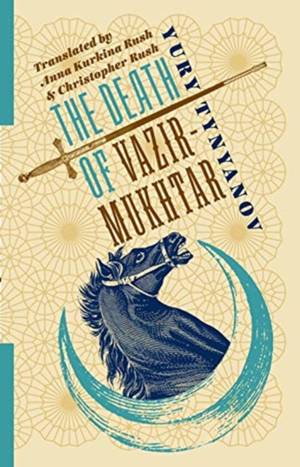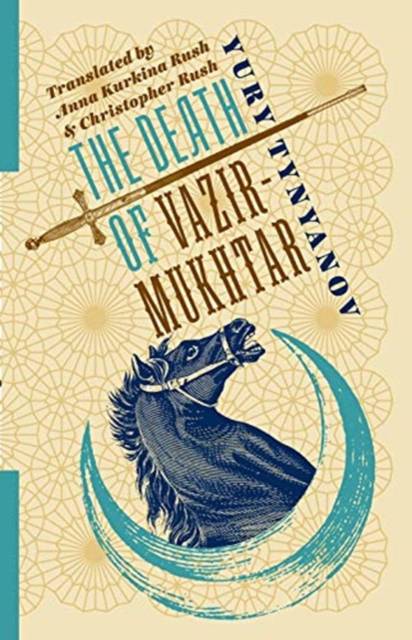
Je cadeautjes zeker op tijd in huis hebben voor de feestdagen? Kom langs in onze winkels en vind het perfecte geschenk!
- Afhalen na 1 uur in een winkel met voorraad
- Gratis thuislevering in België vanaf € 30
- Ruim aanbod met 7 miljoen producten
Je cadeautjes zeker op tijd in huis hebben voor de feestdagen? Kom langs in onze winkels en vind het perfecte geschenk!
- Afhalen na 1 uur in een winkel met voorraad
- Gratis thuislevering in België vanaf € 30
- Ruim aanbod met 7 miljoen producten
Zoeken
€ 67,95
+ 135 punten
Uitvoering
Omschrijving
The Death of Vazir-Mukhtar, a novel by Yury Tynyanov, a leading figure of the Russian formalist school, describes the final year in the life of Alexander Griboedov, the author of the comedy Woe from Wit. As ambassador to Persia, Griboedov was savagely murdered in Tehran in 1829 in an attack on the Russian embassy. The novel is not only one of the central texts of Russian formalist literary production but also a brilliant meditation on the nature of historical and poetic consciousness and on literary creation. It is a complex and fascinating work on the nature of the relationship among individual memory, historical fact, and the literary imagination. The result is a hybrid text, containing elements of literary biography, the psychological existential novel, and the spy novel, and a deeply personal, almost confessional work about the relationship of the writer to his generation and the state. Written in 1927 and 1928, almost a century after the events it depicts, The Death of Vazir-Mukhtar bridges two watershed periods between revolution and reaction. At a time when the Soviet regime was becoming increasingly restrictive of freedom of expression and conscience, Tynyanov examined themes of disillusionment, betrayal, unrealized potential, and wasted talent. Unabashedly intellectual yet full of intrigue and suspense, The Death of Vazir-Mukhtar is one of the great historical novels of Russian modernism.
Specificaties
Betrokkenen
- Auteur(s):
- Vertaler(s):
- Uitgeverij:
Inhoud
- Aantal bladzijden:
- 632
- Taal:
- Engels
- Reeks:
Eigenschappen
- Productcode (EAN):
- 9780231193863
- Verschijningsdatum:
- 27/04/2021
- Uitvoering:
- Hardcover
- Formaat:
- Genaaid
- Afmetingen:
- 140 mm x 216 mm
- Gewicht:
- 948 g

Alleen bij Standaard Boekhandel
+ 135 punten op je klantenkaart van Standaard Boekhandel
Beoordelingen
We publiceren alleen reviews die voldoen aan de voorwaarden voor reviews. Bekijk onze voorwaarden voor reviews.









